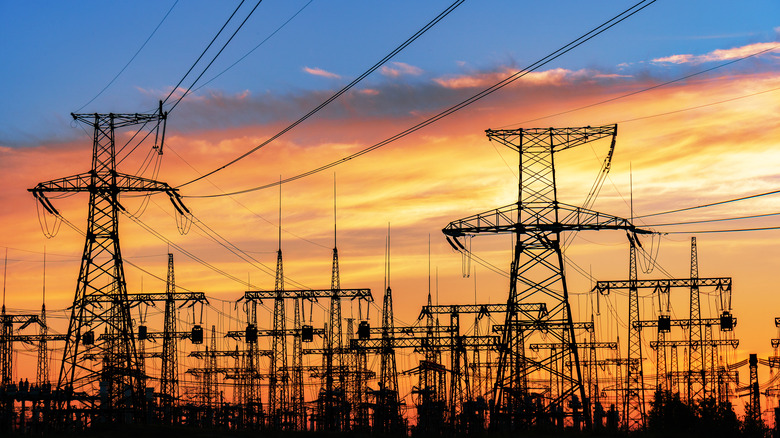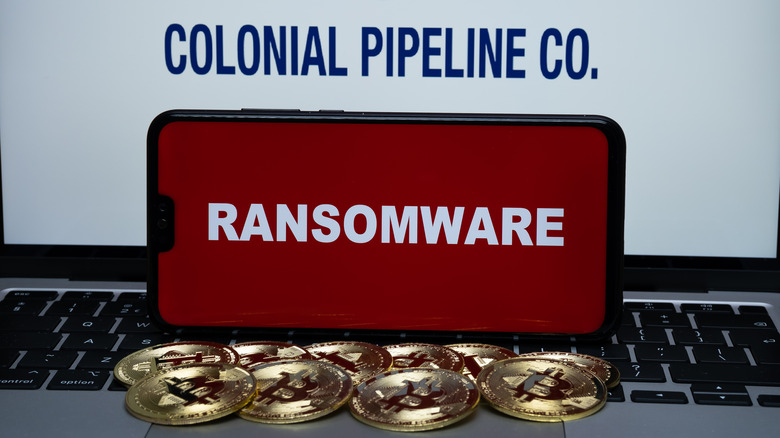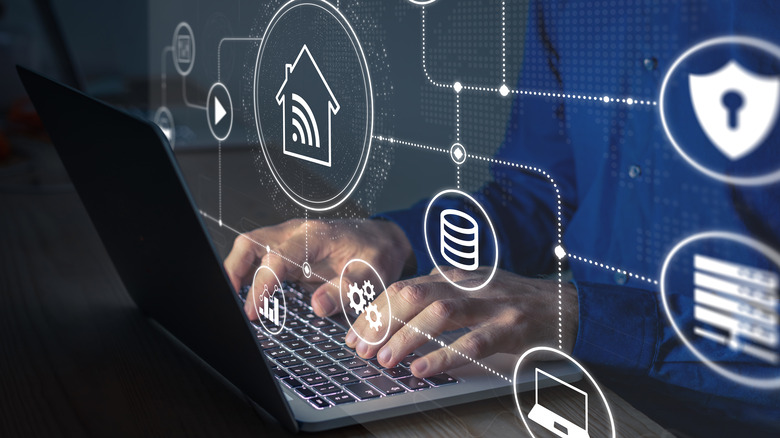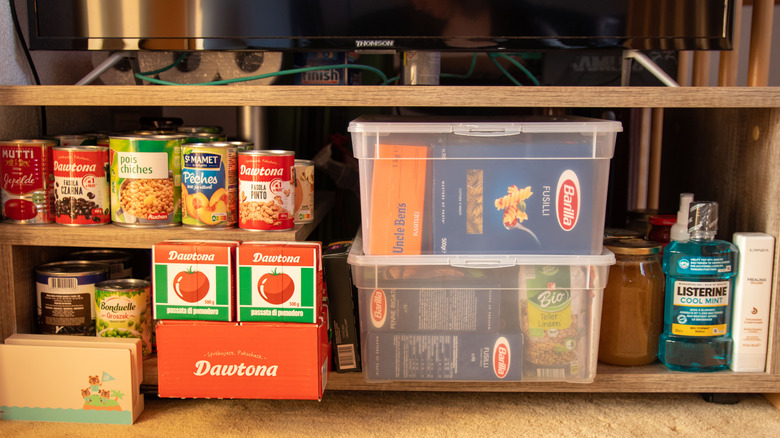Why You Might Want To Prepare For The US Power Grid Going Down
Every summer in the U.S., there is always talk of conserving energy to reduce the chances of a potential power outage. Officials in various cities often urge Americans to use less electricity, particularly avoiding high-voltage household items, to lessen the threat of blackouts.
Recently, the mayor of New York City told residents not to use air conditioners during a heatwave week to conserve energy. He was heavily criticized for the recommendation, per the Independent. Earlier this year, Texas nearly experienced a months-long indefinite blackout when an unexpected winter storm hit the state and caused blackouts in millions of homes, reported The Texas Tribune. Of course, there are always the threats of storms and other natural disasters that can jeopardize any power grid. Blackouts happen, and most times power is back up and running fairly quickly. But just how prepared is the average American household if the U.S. power grid goes down? Especially for a long period?
The threat of cyberattacks
It's not just storms and energy usage that endanger the systems that manage the power we all use. According to a 2017 article from the Harvard Business Review, cyberattacks are also a concern, especially since we use technology in almost every facet of our lives.
However, apparently no major U.S. city is fully prepared for the possibility of a power outage caused by a cyberattack. Despite the Harvard article being 4 years old, in the last few months, there have been quite a few cyberattacks threatening American society. This past spring, Americans were flooding the pumps for gas for fear of a shortage when the network of Colonial Pipeline, a major supplier of fuel, was hit with a ransomware attack (via BBC). Not even a month later, a large international meat processing company also faced a ransomware attack (via BBC). The company ended up paying the hefty $11 million in bitcoin the hackers asked for because of the complex nature of the attack, said a spokesman.
The damage that cyberattacks are capable of
Cyberattacks are happening more and more often compared to 10 or 15 years ago, and they don't just threaten our personal information. They are threatening major and global companies, too, and sophisticated hackers are getting rewarded for it. No one really knows what will be the source of another attack, which is why Americans might want to prepare for the power grid going down. As stated by the Harvard Business Review article, it has happened before. It happened in Ukraine a few years ago, and though it was only for a short period, it was apparently intended to cause long-lasting damage, says Wired. While nearly every American city does have some kind of plan for a potential power outage, most are not long-term ones. And unfortunately, an orchestrated blackout is one that experts say can last weeks (via The Washington Post).
If the power grid were to fail via a cyberattack — which hackers use to cause wide-scale damage — most cities would be unprepared, especially larger ones. While there are governmental things beyond our control, like ensuring there is security in place to prevent an attack, what can the average American do in preparation?
How to prepare for the worst
According to Common Sense Home, there are many survivalist steps one can take. It is recommended that basic blackout items, such as candles, flashlights, and batteries are stocked. Energy efficient mechanisms like solar panels will be of great use during a blackout, along with having a generator, which is a good backup.
For food and water, having several water cases is highly recommended. You should buy the foods that you eat all the time when they're on sale to stock. Of course, with no power, how will you cook it? Knowing how to cook without a stove is a vital skill. If you purchase a lot of charcoal, you'll always have a charcoal grill as a cooking option available. And don't forget to have nonperishable items.
Another important step is to always have cash on hand. People today use debit cards and their phones to make all types of purchases. No power means none of these modern systems will work, and it also means banks won't be available. If you need to buy something during an outage, having cash money means you can still buy things (via Government Technology).
An overall factor to consider is to think about all the things you regularly use that require electricity, and how will you manage without them.



